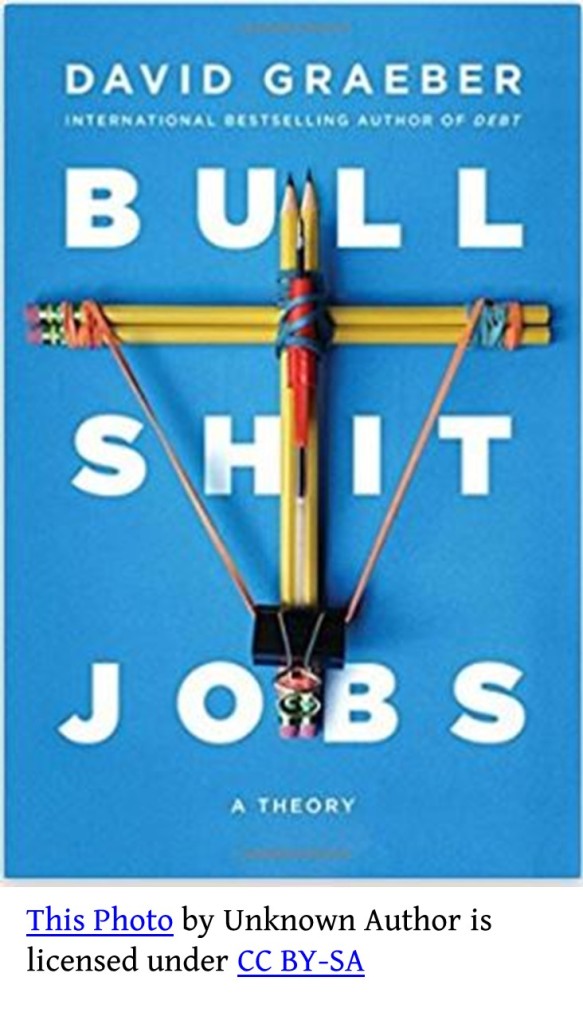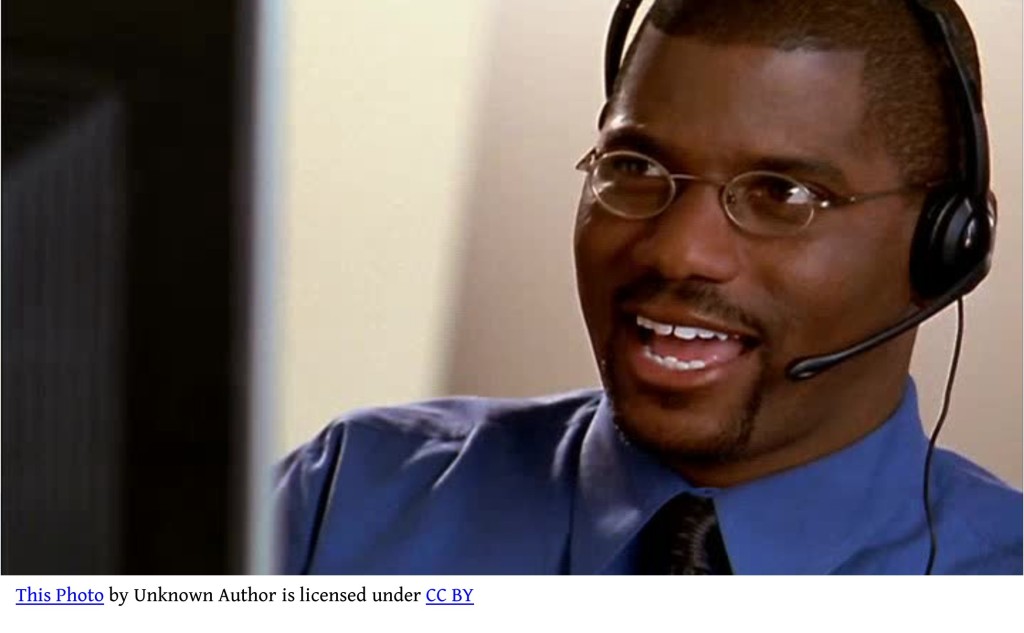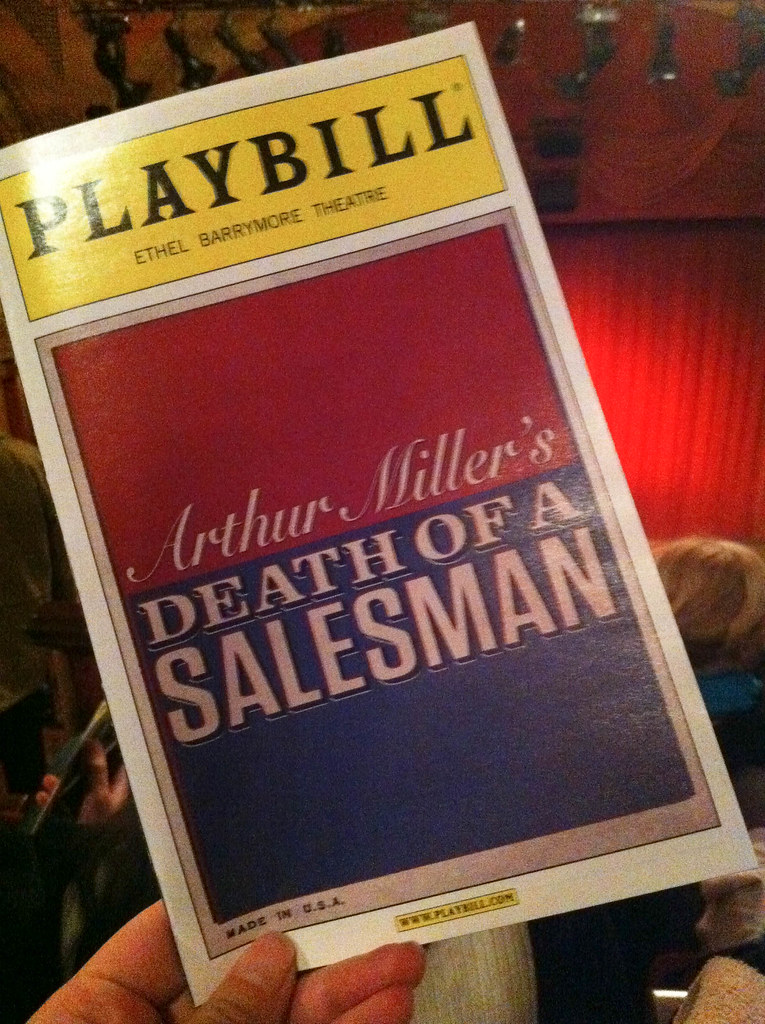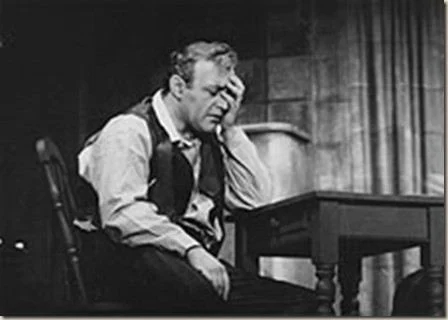The title sounds like some sort of seminar. I can almost hear the enthusiastic voice of some 20-year-old guru asking for a show of hands. I can easily imagine him saying, “That’s perfect! Great. Love the involvement. The message is really getting through.”

For the record, I would prefer to be stripped naked, tied to an anthill, and coated in honey than to do any such presentation. Salesmanship makes my skin crawl. I had to sell DirecTV for several months, and I would need to go home every night and try to remind myself that I was not inherently evil; I was just doing evil things for a little while so I could eat. That sort of equivocation does little for one’s soul.
No, this isn’t a sales pitch. If it were up to me, you would buy nothing ever again because money would cease to exist. If you’re listening to this anywhere other than Patreon, you’ll have to tolerate a commercial in a little while, but I won’t be selling joy. I don’t believe it can be sold. “Life is pain, Highness. Anyone who says differently is selling something,” as Wesley reminded Buttercup.
So, what the hell do I mean about Finding Joy Even In Poverty? How stupid is that? Shouldn’t I be ashamed of myself? Frankly, I’m ashamed of myself for many, many things. This just isn’t one of them. Why?
I manage to find Joy even while I live only a few dollars above the Poverty Line. I do that by recognizing the difference between what I need and what I want. As it turns out, I don’t even want all that much anymore.
I need a place to live and sleep. I need food. I need something to drink. I need insulin and my other medications. I need the needles so I can take my insulin. I have those things covered.
I want the equipment to do my show well. I want this computer so I can write. I want enough soda to make it possible for me to exist. I want enough cigarettes to keep from killing Speedy Shine. I want a little weed so I can loosen up my brain and slow down my stress. I have those things covered, too.
I wouldn’t object to having better equipment, but I think my show sounds great with what I have. I wouldn’t mind having more space for my books, but I can get access to most of them now, anyway, so it’s fine. I lost the desire for nice clothes seven years ago. A friend sent me some new ones anyway a couple of weeks ago. They’re the first I’ve had since I quit teaching. I didn’t need them, but I’m certainly happy to have them.
When you’ve lived without for long enough, you realize how much you don’t really need anyway. I’m fortunate enough to have been all but killed by my Diabetes. That seems rather antithetical to good fortune, but it’s allowed me to live what little may remain of my life in the way that I want to.
No one can expect me to go to work. I’ll be dead before the end of the first week. So, the government gives me not-really-enough money on which to live. I get by, though, just as Lennon and McCartney did, “with a little help from my friends.” So, there are things I don’t need anymore.
I don’t need a car. I live in terror of other people, so I almost never need to go anywhere. Using Lyft a couple of times a month is much cheaper than car payments, paying for parking, paying for insurance, paying for maintenance, and paying for any tickets I might get because I have no patience anymore. And there is pure Joy in being freed of this need. I don’t have to worry about my car failing to start when I need to get somewhere. I don’t need to call tow trucks. I don’t need to hope I can find a mechanic or hope that I can find someone to pass my car through smog checks when the check engine light won’t go off. I don’t need to stop smoking up for 5 hours so I can drive safely. The last time I had a flat tire, I had to have my best friend change it because I am incapable of such a feat. All those problems are off my plate. I’m many pounds lighter for their absence.
Another glorious absence is the necessity of the alarm clock. I still have alarms set on my phone, but they are exclusively for the things I want to do. There is no more 5:37 AM disturbance that tells me to get in the shower and rush off to work. When I am tired now, I get to sleep. That luxury is extraordinary. I used to dream of it. I thought it meant needing to win the lottery. It didn’t. It meant being able to get by with less. I’m more than happy to make that trade. (Okay, it also meant having my body all but destroyed by Diabetes, but that’s the way it goes. I would really prefer not to be Diabetic, but there’s nothing to be done.) I’m tired this morning. I’m going to go make some breakfast and lie down. That’s one of the most joyous feelings I know.
Sometimes we need to lose things in order to learn not only their value, but also their weight. Loss is a brilliant teacher that way; it can show us what’s important simply by creating space where it once was.
— Mark Groves
I have the space to pay attention to what matters to me. I want to be a better writer. I’m working as hard as I can to make that happen. I want my words to move people. I want my prose to make them recognize not only that the world should be changed, but that it can be changed whenever we decide we want it to be. I need to be a better writer if I’m going to manage that.
Many people told me this morning that I’m wasting my time by trying to change the minds of those who are rooting for the demise of Democracy. They may be right, but that makes no difference. If I open one of their minds a quarter of an inch farther, I’ve done something.
And now I have the time to devote to that goal. In the most meaningful sense of the word, I’m Free. I’m allowed to spend my time in the ways I choose. I may think what I like. I may do, for the most part, what I like. (Okay, I’ll never be able to travel to see Sara Niemietz and Snuffy Walden again, but they rarely play together anymore, anyway, and I can see Sara once a week on Weekly Wacky Wednesday. I see Snuffy being all happy in Europe. That’s enough for me.)
I get to be who I choose to be. That’s what Freedom really means.
I don’t want to recommend that anyone become diabetic. I’m not sure that’s something you can do intentionally, anyway. I don’t know of any little kid who grew up thinking they want to be diabetic so they can stay home and write all day long, so long as they avoid both DKA and hypoglycemia.
But that’s where I am. I don’t like worrying about whether I’m going to overdraw my account every month, but if I’m careful I can usually avoid that. I have a place to live. It’s not the nicest place you’ve ever seen. The furniture is unsellable. I would have to pay someone to haul it away. The carpet needed to be replaced years before I moved in. One of the sliding glass doors won’t open at all. But it’s safe. It’s reasonably clean… by my standards, even if not by yours… and it’s mine. There’s no one to tell me what’s wrong with me anymore. I’m without a wife. That makes my life much easier.
I know people who would loathe living the way I do. They can’t stand the thought of being alone. I can’t stand the thought of being around people any more than is absolutely necessary.
Freedom is, for me, the key to Joy. Doing the things that are meaningful to me, ignoring the things that aren’t, and finding my authentic hat as a writer makes me happier than anything else I know.
This is why we need a Universal Basic Income. Everyone should have at least what I do. Let us do the work we want to do and not what someone else tells us to do. We need to end Bullshit Jobs.

Wait, what? What are Bullshit Jobs? Did you just make that up, Fred?
Bullshit Jobs: A Theory is a 2018 book by anthropologist David Graeber that postulates the existence of meaningless jobs and analyzes their societal harm. He contends that over half of societal work is pointless, and becomes psychologically destructive when paired with a work ethic that associates work with self-worth. Graeber describes five types of meaningless jobs, in which workers pretend their role is not as pointless or harmful as they know it to be: flunkies, goons, duct tapers, box tickers, and taskmasters. He argues that the association of labor with virtuous suffering is recent in human history, and proposes unions and universal basic income as a potential solution.
— https://en.wikipedia.org/wiki/Bullshit_Jobs
I’m not wise enough to determine who deserves what, but I assure you that all people, whether I like them or not, deserve a home, sufficient food, and appropriate medical care. No, that won’t cripple society. You can say any number of horrible things about me, but one thing you can’t accuse me of being is lazy. I wasn’t lazy when I spent 60 or more hours a week teaching, either.
Even more perverse, there seems to be a broad sense that this is the way things should be. This is one of the secret strengths of right-wing populism. You can see it when tabloids whip up resentment against tube workers for paralysing London during contract disputes: the very fact that tube workers can paralyse London shows that their work is actually necessary, but this seems to be precisely what annoys people. It’s even clearer in the US, where Republicans have had remarkable success mobilizing resentment against school teachers, or auto workers (and not, significantly, against the school administrators or auto industry managers who actually cause the problems) for their supposedly bloated wages and benefits. It’s as if they are being told ‘but you get to teach children! Or make cars! You get to have real jobs! And on top of that you have the nerve to also expect middle-class pensions and health care?’
https://www.atlasofplaces.com/essays/on-the-phenomenon-of-bullshit-jobs/
I put not less than 60 hours a week just into this podcast. I’m getting better at using the software, so I don’t need as much time to record a basic episode. I still need help, though, on the big ones. I had to get Chris from Interstellar Frequency to help me with “The Impossible Conversation.”
That doesn’t mean I work less. It means I can afford to put more time into the writing process. It means I can invest my minutes more meaningfully. Improvements in technology made this possible.
40 years ago, I had to use a typewriter. If I made a mistake, I would think long and hard about correcting it because using liquid paper is difficult. No matter how well you manage it, your manuscript looks unprofessional. Erasable paper was expensive, and it tended to smudge. Today I can rewrite with the backspace key. I can move paragraphs with a couple of keystrokes. I can save the same work in different versions, so I feel more free to take chances.
40 years ago, the best I could do was a tape deck and a mixer to do anything remotely resembling a podcast. The CD player was brand new. You had to buy a whole CD to get the track or two you wanted. Today I have access to an enormous library of music I can use legally. I have a computer that lets me put it precisely where I want it at exactly the right volume. I can make my voice do things I never would have dreamt of in 1983.
Technology has made my work more efficient so I can learn to make it more effective. And it’s cheaper than ever. Even living a foot or two above the poverty line, because I get so much help from so many people, I can afford the technology I need to do my best work as well as possible. Technology is one of the few things that becomes cheaper as time passes. My first VCR cost $900. I can get a Blu Ray/DVD player for less than $100 today, and I don’t really need it anymore because I can watch nearly anything with streaming services.
That technology needs to be available to everyone. We could easily ensure everyone has access to the internet. With that access, people could make use of all that Artificial Intelligence is already beginning to do for us. It won’t be long before AI can do nearly all the work of human beings, freeing all of us, and not just those who are sufficiently wealthy or sufficiently impoverished that they aren’t forced to do a Bullshit Job to make ends meet.
Why, I wonder, do Bullshit Jobs exist?
Last night, for example, while in the midst of a fascinating conversation I was having with other writers from different parts of the country, my internet died. Shockingly enough, I called Cox Internet to find out why that happened. Of course, I got the automated response first. Press 1 for this and 2 for that. Okay. That wasted my time, but no one else’s.
Then I had to get transferred from one human to the next and the next and the next before I got an answer that could more easily have been given by the AI. There was an outage they expected to have repaired by 9:48 PM. When that didn’t happen, I used the text feature, and again I went through the automated response before I got to a supposed human being whose job was to thank me for my patience and tell me there is an outage, and the new time was expected to be 1:48 AM. The same thing happened this morning. I went through the same process to learn that it would be 5:48 AM.

People were paid to do what any decent AI should have been able to do. And I think they secretly knew it.
Why would Corporate America pay people to waste their time and mine? Graeber has some ideas on this:
The answer clearly isn’t economic: it’s moral and political. The ruling class has figured out that a happy and productive population with free time on their hands is a mortal danger (think of what started to happen when this even began to be approximated in the ‘60s). And, on the other hand, the feeling that work is a moral value in itself, and that anyone not willing to submit themselves to some kind of intense work discipline for most of their waking hours deserves nothing, is extraordinarily convenient for them.
— https://www.atlasofplaces.com/essays/on-the-phenomenon-of-bullshit-jobs/
We could free people from these Bullshit Jobs by dropping the mythology of the Puritan Work Ethic. I don’t think anyone believes anymore that hard work and wealth have any more than a nodding acquaintance with one another. We have more than enough resources to give everyone the life I have without requiring them to be mostly dead to get it. Why not use those resources to help ourselves instead of employing our people to do nothing of any importance?
The economist, John Maynard Keynes, predicted in 1930 that by now we would all be working 15-hour weeks because that’s all that would be necessary to accomplish what needs to be done. He believed that we would solve The Economic Problem, and that technology would free us from labor. It would create the problem of what we would do with our leisure time, but he pointed out that the wealthy were, even then, scouts in that undiscovered country. We could easily solve that problem. He looked forward to being able to do away with the endless pursuit of wealth.
When the accumulation of wealth is no longer of high social importance, there will be great changes in the code of morals. We shall be able to rid ourselves of many of the pseudo-moral principles which have hag-ridden us for two hundred years, by which we have exalted some of the most distasteful of human qualities into the position of the highest virtues. We shall be able to afford to dare to assess the money-motive at its true value. The love of money as a possession -as distinguished from the love of money as a means to the enjoyments and realities of life -will be recognised for what it is, a somewhat disgusting morbidity, one of those semi criminal, semi-pathological propensities which one hands over with a shudder to the specialists in mental disease. All kinds of social customs and economic practices, affecting the distribution of wealth and of economic rewards and penalties, which we now maintain at all costs, however distasteful and unjust they may be in themselves, because they are tremendously useful in promoting the accumulation of capital, we shall then be free, at last, to discard.
http://www.econ.yale.edu/smith/econ116a/keynes1.pdf
Our social growth is lagging far behind our technological progress. We should certainly have accomplished his predictions by now. We would have, but we’ve gone out of our way to cement into the consciousness that the suffering of pointless labor and Bullshit Jobs is virtuous. We need to serve some master, somewhere. For some it is some form of God. For others it is the Corporate Masters. For some it is both.
I am among the few who serve neither Master. It’s long passed the time for the rest of the world to join me. You’re welcome to serve God, in whatever form you believe He exists, but we need to stop serving the corporate masters who want to steal the minutes of your life. We have the resources. We have the technology. We have the knowledge. We lack only the will. I’m hoping I might have ignited your will to change the world, and that you’ll ignite someone else’s desire to be Free.
The key to finding Joy, for me, is loving what I have. It is the freedom that comes from being master of my own time. I would be even more joyous if everyone had what I do. What I have is something many people much wealthier than I will ever be will never have. I have Enough.





















